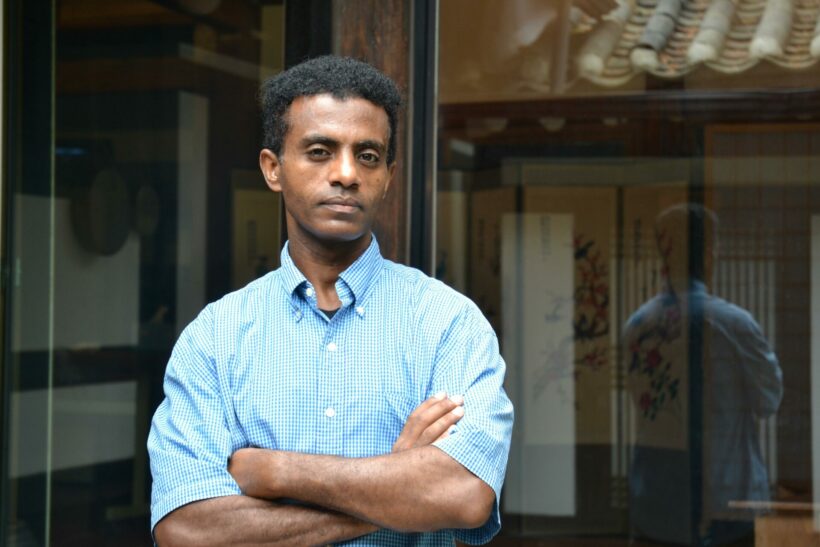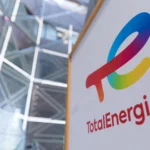This year in June, South Korea hosted the first-ever Korea-Africa Summit since the Korean government was founded in 1948 by inviting delegations from 48 African countries, about 30 of whom were state leaders. It is believed by many experts in the field that Korea and Africa renewed their partnership in various aspects of cooperation and business deals at the state-heads level, as well as a few African leaders securing millions of funds for projects in their countries.
However, it’s hard to predict how African leaders would utilize the secured funds they have received from Korea, as the continent has been trapped by billions of dollars in debt. This particular topic, deepening the debt crisis, cast shadows for many African countries to emerge out of debt, progress in development and eradicate poverty. Recently, after many discussions with an Ethiopian scholar friend, Mesay Berhanu, about the economic, social, and overall development of Africa, he took time to come up with an in-depth analysis of writing his reflections and recommendation focusing on the Korea-Africa partnership.
I would like to invite our readers to the papers entitled “Africa’s deepening debt crisis: How Korea’s latest move would help make a difference” papers.
Africa’s deepening debt crisis: How Korea’s latest move would help make a difference
As Africa is rich with rare minerals that are essential to high-tech industries of the future including semiconductors or batteries, the continent is attracting the attention of the leading global technology actors from different corners of the globe. The region also presents huge business opportunities particularly in infrastructure projects as many African nations are now on course paving their ways to achieve ambitious economic growth and prosperity. As a result, Africa has increasingly become a battleground for the clashing interests between traditional creditors and emerging powers.
On the basis of the latest Macroeconomic Performance and Outlook report from the African Development Bank Group, the continent is expected to register an average GDP growth of 3.8 percent in 2024, with even a better prospect for further expansion to 4.2 percent in 2025. This would make Africa the second-fastest-growing economic region globally. Despite such a promising prospect, many countries on the continent are still caught up with wide range of development challenges which include high debt burdens and the associated soaring borrowing costs that are already taking tolls on public service provision and development spending.
Let Us Build Your Online Success!
We are the experts in creating visually stunning and functional websites. With reliable hosting and exceptional customer support, we bring your vision to life. Join hundreds of happy clients who trust us!
Get Started Now📞 Call/WhatsApp: +256 207 800 192
Africa’s rising debt burden
The burden of total public debt of Africa exceeded USD1.8 trillion by 2022, an increase by 183% since 2010, which accounted for nearly 300% times higher than Africa’s GDP growth rate during the same period. As a result, the ratio of debt-to-GDP in many African nations was projected to exceed 60% in 2023. External debt heavily impacts at least one third of African nations as they are either over-indebted or at the brink of over-indebtedness. External public debt of sub-Saharan African countries increased more than two-fold from USD 305 billion in 2010 to USD 702 billion in 2020. This increase represented 40% of the region’s GDP and 156% of its export trade, a notable increase from 24% and 76% a decade ago respectively.
As a result, African countries collectively had to pay USD 44 billion in interest to external creditors in 2022, as some of these countries had to spend up to 60% of their national revenue to debt servicing, costing them essential public services such as health care, education, job creation, access to electricity and clean drinking water.
According to the World Bank assessment of a sample of 65 developing countries, public debt increased by 18 percent of GDP on average between 2011 and 2019. The problem was even much worse in sub-Saharan Africa that increased by 27 percent of GDP on average. Unfortunately, these debts are not spent on long-term infrastructure projects which would increase growth rates to allow the countries to eventually exit from a permanent debt crisis. They are mostly spent to pay off older debts and pay for their current bills to provide such basic public services as education, and health. Among the thirty-three sub-Saharan African countries in the sample, World Bank has noted that current spending exceeds capital investment by a ratio of nearly three to one.
The IMF Impositions
Despite French President Emmanuel Macron’s proposition for a massive cancellation of Africa’s debt on 13 April 2020 to help the continent cope with the impacts of COVID-19, the G20 opted for a temporary suspension of payment for the poorest countries. Hence, 60% of African countries are struggling to meet local needs as they are obliged to spend more on repaying their debts. The ongoing war in Ukraine also have particularly huge impacts on African countries due to rising international commodity prices.
In the October 2022 Fiscal Monitor Report, subtitled Helping People Bounce Back, the IMF reiterates the need to ensure access to affordable food to everyone and the protection of low-income households from rising inflation. However, the international monetary institute strongly discourages indebted poor developing nations from limiting price increases through price controls, subsidies, or tax cuts which are regarded costly to the budget and which is said to be ultimately ineffective. As a result, the IMF is criticized for offering no viable exit for these indebted poor developing countries from a permanent debt crisis except to continue to borrow more to meet their public needs. For instance, part of the latest disbursement of USD1.2 billion which Kenya has received from the World Bank will be spent on settling the USD500 million Eurobond matured in June 2024. As a result of the conditionalities attached to such loan agreement, the Kenyan government’s plan to increase taxes has led to the nationwide protest that turns violent, which has consequently forced the government to back down on its plan.
Receiving USD 3.3 billion in 2022, Kenya is among the top ten countries in Africa along with Tanzania (USD3 billion), Uganda (USD2.4 billion), and the Democratic Republic of Congo (DRC) (USD3.4 billion) which are all heavily reliant on ODA, according to the latest report by the Mo Ibrahim Foundation. Despite the recent decline in the total ODA inflow to the continent from USD86.4 billion in 2020 to USD81.4 billion in 2022, Africa has remained the top receipent of such external assitance since 2013 except in the year 2018. The top ten receipients also include Egypt, Ethiopia, Nigeria, Mozambique, Morocco and Niger which altogether recieved USD37.8 billion in 2022, representing 46.4 percent of all aid money flowing into the continent.
The World Bank recently warned that there may be a possibility for the cancellation of the USD1.5 billion loan granted to Nigeria, should the nation fail to adhere to the prescribed macroeconomic reforms it has committed to make ranging from increasing gasoline prices, and removing certain tax allowances, to introducing new taxes, among several other measures. The agreement also includes cash transfer program that is meant to protect the poor and economically insecure segments of the population.
After Ghana defaulted on most of its USD30 billion in external debt in 2022 partly due to COVID-19 pandemic, the war in Ukraine and higher global interest rates, the west African nation has now become the second African country after Zambia to stike a deal with external bondholders for a USD13 billion debt deal. According to the agreement, the nation is entitled to have debt relief on USD4.7 billion of its loans while receving a cash flow of about USD4.4 billion up until 2026. Another African country from the Horn, Ethiopia, is also expecting to make a similar deal with the IMF in its bid for a full scale debt restructuring since it has defaulted on its a 1 billion Eurobond in December last year failing to make a USD33 million “coupon” payment. However, to qualify for the desired debt restructuirng, Ethiopia is required to devalue its local currency which is going to spike further the already high inflation rate that is struggling the local economy.
China’s ‘debt trap diplomacy’
China’s strategical position and engagement in Africa has been achieved largely through its investments in infrastructure and mining. Chinese large-scale, high-risk investment model is viewed by its Western counterparts as a power tool to maximize the extent of its influence over African countries. As part of its long-term goals envisioned in the “One Belt” initiative, China is accused of bending on the acquisition of such strategic assets as airports, ports, and railways, should African countries default on their debts. China also makes a move to enter into the field of private military and security companies in Africa in the name of protecting its investments on the continent.
China’s loans to 49 African countries and regional institutions is indicated to have exceeded USD170 billion between 2000 and 2022. According to a study by New Institute for Security Studies (ISS), China was not the primary cause of Africa’s debt crisis though there are still concerns about lack of transparency, and there are clauses in loan contracts between the two parties which would impact local industries. Another problem is the absence of collective restructuring options in Chinese loan contracts. These contracts also contain terms stipulating Chinese state-owned enterprises as primary contractors for the projects, which negatively impacts the development of local industries.
The narrative of ‘debt trap diplomacy’, a term first coined by an Indian think tank in 2017 and then widely used by Western actors, describes a scenario where Chinese loans to African countries may eventually lead to unsustainable debt burdens, and potentially to a loss of sovereignty for many countries on the continent. According to a research by the Institute for Security Studies, the inclusion in loan agreements of such terms as the prohibition of collective restructuring and the inclusion of extensive confidentiality clauses would be detrimental to the ability of the individual nations to make independent and sovereign financial decisions.
Another recent study also indicated that half of Chinese loans in sub-Saharan Africa are not disclosed in sovereign debt records. However, such opacity is not only limited to Chinese lending, as some Western private sector loans are also implicated in the same practice as well.
The significant role of China’s engagement with Africa involves concessional loans which have more favourable terms than standard commercial loans, and as such they are often directed towards infrastructure projects, addressing the infrastructure gap on the continent.
However, there are other significant collateral risks that hinder the financial flexibility of African countries. A case in point is the USD200 million loan for Entebbe International Airport Upgrading Project which the Export-Import Bank of China granted Uganda in 2015. As the airport is not a liquid asset and hence could not serve as collateral, Uganda was required to make a cash deposit in an escrow account, which will give the the lender the right to seize it in case of default. The terms of the agreement also direct all airport revenues towards a 20-year loan repayment disregarding the fact that the airport predated the loan.
According to a 2017 research paper which analyzed 29 publicly funded projects across ten countries, the projects failed due to a host of factors including political agendas, flaws in the project awarding process, as well as insufficient stakeholder cooperation. Issues in project planning and implementation, lack of effective maintenance and challenges related to public acceptance and inclusion are also cited among a host of problems which render many externally supported projects in Africa unsuccessful over the past decades.
South Korea’s Approach: ‘A New Model’?
Korea’s engagement with Africa has never come close to its regional contenders such as China and Japan over the past decades. Still, the volume of trade between Korea and Africa has shown a marked increase of nearly 20 folds from just USD900 million in 1988 to USD16.6 billion in 2023, with a concomitant increase in foreign direct investment.
The most critical issues African leaders raised during the 2024 Seoul Africa Summit held early last month include technology transfer to Africa, balanced trade and facilitation of debt reduction through multilateral lenders. Korea provides a growing market for Africa’s useful minerals but concerns still remain that Africans do not have the technological capability to process the natural resources locally using appropriate technology even at a preliminary stage.
Korea has promised to double official development assistance to Africa to USD10 billion by 2030 and pump USD14 billion to fund Korean companies’ investments in Africa. But what is described as the ‘new model’ is expected to be much more than just providing aid. Seoul has brought to the table what is dubbed as Tech4Africa initiative that is mainly focusing on providing education and training opportunities to Africa’s burgeoning young population. It is noted that the latest approach that focuses on human development and management is believed to be critical to boost economic development in Africa.
Korea also pledges to conclude bilateral arrangements with individual African countries, including Economic Partnership Agreements (EPA), Trade and Investment
Promotion Frameworks, Double Taxation Avoidance Agreements, and Investment Protection Agreements. Some reflect concerns that the enthusiasm reflected among certain African nations to forge EPA with Korea may perhaps undermine the continental wide initiative known as African Continental Free Trade Area (AfCFTA) that is slowly taking roots among African states. As there is no free trade agreement the Republic of Korea has entered with Africa collectively, such EPA with individual nations may render African agricultural products uncompetitive, according to Ngovi Kitau, a former Kenyan ambassador to South Korea who recently talked to The EastAfrican.
Indeed, Korea has immense experience and expertise in the field of digital government such as the Customs e-Clearance system (Uni-Pass), the Korea ON-line E-Procurement system (Koneps), and the Korean Statistical Information Service (KOSIS) that can be shared to African governments to improve their public services and advance the development of digital economy on the continent. African leaders are also keen to learn much more from Korea in the areas of robotics, biotechnology, artificial intelligence, among others. However, some observers have noted that Korea appears to be reserved in terms of making pledges to boost technology transfer to African countries, most of which are criticized for lack of strict compliance to international IPR regimes that may not effectively contain the practice of copying and localizing technology.
Africa also looks forward to Korea to support the continent in the area of clean energy through the establishment of reliable supply chain networks, and facilitating the process of decarbonizing production and consumption. It is also noted that Korea can provide clean cooking solutions that will help lower emissions and reduce deforestation, while tackling respiratory-related deaths and enhancing women’s empowerment.
According to a statement by Uganda’s Finance Ministry, South Korea has just signed an agreement with Uganda on the sidelines of the latest summit in Seoul to provide a USD 500 million loan to help finance infrastructure building. Though the details of the infrastructure project are not yet disclosed, it is expected that the money will be spent on financing road and energy projects. Even though the money provides the much-needed financial capacity the country is lacking, it will also further increase Uganda’s growing debt burden which is fueled by infrastructure spending that reached USD24.6 billion as of December 31 last year. According to Moody’s latest rating, Uganda’s rating is downgraded from B2 to B3 for what is described as “diminished debt affordability”.
Kenya has also signed an agreement with Korea for a USD485 million concessional development funding including USD238 million for the implementation of the Konza Digital Media City Project. Under similar initiative earlier designated as the Economic Innovation Partnership Program, Korea has supported the establishment of Kenya Advanced Institute of Science and Technology (Kenya-Aist), mirroring its Korean counterpart, the Korea Advanced Institute of Science and Technology.
Overall, Korea’s latest approach to Africa is expected to be free from stringent conditionalities of the likes of the IMF, and keep clean from China’s ‘dept trap diplomacy’ that is bent on taking African nations hostage to collateral bondages. Instead, it is required to promote openness and accountability in the provision of loans and the implementation of related projects. And most importantly, Korea’s financial assistance to African states should be geared towards expanding infrastructure development in the continent, while promoting local capacity building in terms of technology and skills transfer that is much needed to ensure a brighter future of the burgeoning continent.
In the context of Africa’s increasing debt burden vis-à-vis the competitive and often conflicting roles of its principal international lenders, the promise of a different vision for Africa which Seoul appears to offer supporting the continent’s drive to become one of the manufacturing centers and global production chains is yet to be tested on the ground over the coming years
Mesay Berhanu Gemechu is a graduate of Hankuk University of Foreign Studies, Seoul, South Korea in the area of international development studies focusing on Africa. He served as deputy editor-in-chief of Addis Fortune, the largest English weekly in Ethiopia, and he was also the 2023 African Correspondent for the Korea-Africa Foundation representing his home country. Mesay is currently living in Seoul, South Korea.



